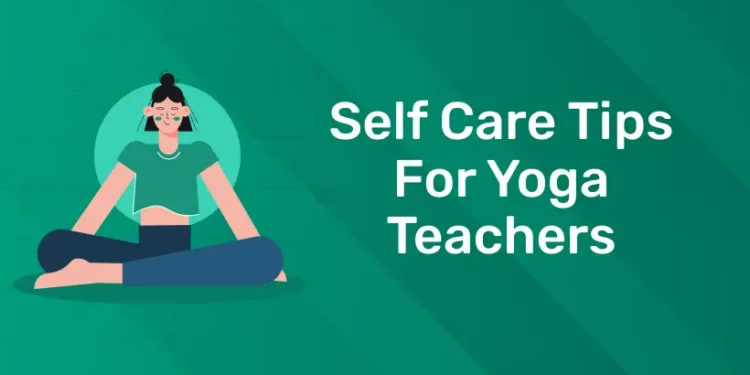Table of Contents
Being a yoga teacher comes with a lot of responsibility. It is not just teaching the poses. Becoming a yoga teacher is a life-transforming resolution that enables you to bestow the treasure of the ancient art or wisdom of yoga to others. “Yoga Teacher” is someone who is responsible for spreading wisdom related to yoga. To become a certified yoga instructor, participating in a Yoga Teacher Training is the first step. YTC is designed to provide the tools necessary to teach others about the ancient practice of yoga. It also teaches you to provide major lessons to your students, and trains you to become an instructor.
Yoga is not only a physical practice, but it is a lifestyle lived off the mat as well. For many students, connecting with a teacher is the necessary medium to get introduced to this kind of life.
Master the art of Yoga from Entri, Enroll now!
Introduction- What is Yoga
Yoga is an ancient practice, that aims to unite body , mind and spirit. It originated in India as a spiritual practice but in the present world it has become popular as a way of promoting physical and mental well-being.
Although classical yoga also includes other elements, yogas practiced in Western countries typically emphasizes physical postures (asanas), breathing techniques (pranayama), and meditation (dyana).
There are many different yoga styles, ranging from gentle practices to physically demanding ones. This makes it challenging to evaluate research on the health effects of yoga.
Yoga is based on the Sanskrit word Yuj which means union and the ultimate goal of yoga is to achieve union.
Who is a Yoga Teacher
A yoga teacher, who is also referred to as Yogi Guru in India, is a professional fitness instructor who exhibits in-depth knowledge in the science of yoga and meditation. A candidate looking to pursue yoga as a profession requires adequate qualification, certificate, and appropriate eligibility criteria to teach at fitness centers and studios.
Yoga Teacher Eligibility
The eligibility criteria for a yoga teacher are as below:
- Good personal fitness and flexibility
- Good self-motivational skills and ability to empathize with fellow people
- Excellent communication and inspirational skills
- Ed/ M.Ed/ Diploma/ M.A/ B.A in Yoga training and teaching
- Good collaboration and instructional skills
- Excellent knowledge in the field of Yoga and meditation science
Master the art of Yoga from Entri, Enroll now!
Yoga Teacher Qualification
Currently, the need for yoga teachers in educational as well as corporate organizations is on the higher end. Yoga is unlike other physical exercises, where flex-and-stretch of muscles is very little and harmless. Yoga involves precise postures and controlled exercises which when performed incorrectly tend to cause serious pain to the muscle and possibility to harm the body. Thus, acquiring professional training and certificate in the profession is very crucial and essential to avoid misguided and wrong blunders to teach yoga.
To become a yoga teacher, a candidate must possess a fitness and health degree in Bachelors in Education with a specialization in Yoga courses or attain a Diploma in yoga training. Generally, the training course lasts from a few weeks to few years depending upon the style of Yoga.
Additionally, a Master in Education (M.Ed) in Yoga helps in gaining significant knowledge in different yoga techniques and philosophies boosting the opportunities for the candidates in the field of fitness professionals.
The necessary educational qualification for a Yoga teacher is as below:
- 10+2 Highschool degree
- B.A in Yoga
- M.A in Yoga
- Bachelors in Education (B.Ed -Yoga )
- Master’s in Education (M.Ed -Yoga )
- Diploma in Yoga Training
Yoga Trainer Salary
The salary of a Yoga Teacher ranges from INR 2 – 3 LPA. The salary of a yoga teacher highly depends on the organization, city, and work experience. Yoga instructors are those who teach various physical and mental fitness exercises by instructing proper poses to their students.
Yoga trainers come from a variety of educational background but their profession is mainly expressed by their years of practice of yoga poses which they sometimes proved through earning a certificate. To become a Yoga Teacher, candidates must pursue Yoga courses such as BNYS, MA/MSc in Yoga, etc.
Candidates can also pursue certificate or diploma yoga courses. A trainer recognized by Yoga Alliance standards can train anyone internationally.
Master the art of Yoga from Entri, Enroll now!
Self care tips for yoga teachers
1. Make time for your own practice
Even if it is a couple of minutes of slow breathing, or one round of chanting, make sure you do something each day for yourself. One of the biggest issues trainers have is that they often don’t have as much time for their own practice as they used to. It doesn’t however have to mean spending an hour sweating it out on the yoga mat. Anything that helps keep you focused and present is worth doing each day.
2. Know when to say no
There are many people who would tell you to take all the opportunities you get, cover everyone’s classes and do it all for free. The thing is, yoga teachers can’t live for free. We need to pay for food and shelter too! If you find your schedule is getting a little too hectic and the quality of your classes is suffering because of the quantity, consider reducing some of the things that seem to be taking up more energy than they are worth.
3. Eat well
While many people come to yoga to find peace from the pressures of living up to looking ‘good enough’, body image issues are still common and the ‘Insta-yogi’ type of image that we are all familiar with on social media can make things worse. The fact is, though, if you’re using your body, you need to fuel up. Choose fresh, vibrant foods that you love. What you put in, you get out, so eat well to live well.
4. Sleep well
It goes without saying that we all notice the difference when we haven’t slept well. A busy schedule of evening classes and an early morning practice can affect your body and mind, so develop a routine that gets you into bed early in the evenings. Give yourself permission to sleep a little longer in the mornings if you have had a late night, and your body will thank you in the long run. Foods like kiwis, cherries, bananas, walnuts, almonds, organic dairy products can all contribute towards sleeping well.
5. Rest enough
When we are sleeping, we’re not necessarily resting – we are dreaming, processing, tossing and turning – so spending purposeful time getting some good quality rest is important. Yoga Nidra can be a wonderful way to reset the brain and body. Many yoga teachers note that after teaching for a while, their practice dramatically changes; they often crave a more gentle and still approach and appreciate Savasana a whole lot more!
6. Find a good bodyworker
Aches and pains are almost guaranteed if you use your body every day in your job. Many injuries yoga teachers experience are the result of demonstrating something without fully paying attention to their body in that moment. Find a massage therapist or ayurvedic practitioner who you can trust to help you when you need it most. You can also try some self-massage techniques.
Master the art of Yoga from Entri, Enroll now!
7. Open your mind to other movement practices
Flexibility is great, but not when it’s the only thing you are practicing. Years of stretching without any strengthening can lead to a worn out body and sometimes serious injury. It’s important to balance a yoga practice with other forms of movement, such as swimming, cycling, weight lifting, hiking, etc.
8. Do something that isn’t yoga
Much like the body needs different forms of movement, the mind needs different sorts of stimulation. Reading, watching a film, taking a walk somewhere different, travelling, having a long conversation with friends over dinner, can create new neural connections and breathe a breath of fresh air into the soul.
9. Seek support
Seek support from a mentor, friend or fellow teacher – find someone who knows a little about what it’s like to be in your position so you can talk openly with them about how you are doing.
10. Be true to you
There’s a fine balance between adhering to what a studio asks you to do and selling your soul. Are you teaching fast, strong classes because you are worried your students will be ‘bored’, when you would rather be teaching slow, alignment-based sessions? Your teaching career will be so much more sustainable and enjoyable if it comes from your heart rather than your head.
11. Do your best & let go of the rest
Worrying about whether your students are enjoying the class, thinking over why that woman in the front row looks like she’s having a completely terrible time, are all things that happen. So often teachers finish a class and wish they had said something different or changed something else, but hanging on to the past is wasted energy, so instead of counting mistakes, grow from everything you learn.
12. Remember why you practise
Before you stand in front of a class to share a practice, take a deep breath, check in with yourself, arrive, be present, and remember why you are here.
Entri Yoga Teacher Training Course Online-Transform your life
Overview
Yoga is a great option if you want to live a better life and improve your health while having an exciting profession! Both the public and private sectors have a huge need for yoga instructors. To help you get ready for the YOGA WELLNESS INSTRUCTOR examination provided by the Central Government AYUSH Ministry, Entri App provides a 200-hour course with a duration of three months and consists of online classes, in-person instruction, and practical practice. Below are the benefits :
1) Opportunity to participate in 3 Offline Camps
2) Online study materials
3) Malayalam/English languages
4) Online Evaluation
5) Zoom Live Casses
6) Teaching practice and practicals
7) 200 Hours Class
Conclusion
Research and studies suggest that there are several benefits of yoga which includes several aspects of wellness, including general wellness by relieving stress, mental/emotional health, promoting healthy eating/activity habits, sleep, and balance.
It also helps in relieving neck pain, migraine or tension-type headaches, and pain associated with knee osteoarthritis. It may also have a small benefit for low-back pain
It helps people with overweight or obesity , it also helps people quit smoking. It even helps people with chronic disease manage their symptoms and improve their quality of life.






















